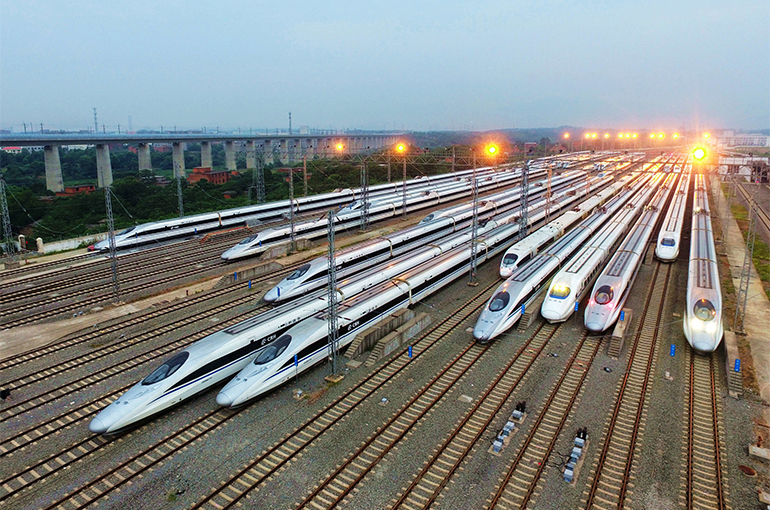 Riding China’s High-Speed Trains to Cost Nearly 20% More From June 15
Riding China’s High-Speed Trains to Cost Nearly 20% More From June 15(Yicai) May 6 -- Many of China’s high-speed train operators will jack up ticket prices by almost 20 percent on June 15, after record high national rail passenger volumes and profit last year, but travelers will be able to seek out bargains thanks to new dynamic pricing.
Prices for 300-kilometer-per-hour or more trains will increase on lines running between Wuhan and Guangzhou, Shanghai and Hangzhou, as well as Shanghai and Kunming, according to recent announcements.
The last price hike was in June 2021, when the biggest increase for a second-class ticket on a Shanghai-Beijing high-speed train was nearly 11 percent to CNY662 from CNY598 (USD94 from USD85).
But this time, a dynamic pricing system will be introduced, offering as much as 45 percent off tickets based on market conditions, seat class, as well as travel dates and times.
The confidence to increase prices comes after earnings rose on the back of a strong recovery in passenger numbers last year. China State Railway, the national passenger and freight railroad operator, reported record annual profit on a 39 percent jump in revenue from transportation to CNY964.1 billion (USD133.6 billion).
Passenger volumes nationwide hit 3.68 billion in 2023, with a single-day peak of more than 20 million and average daily traffic in excess of 10 million, both historical highs. This year, China State Railway expects 3.9 billion passengers, a 5 percent increase.
Record traffic also reflected in the earnings of listed railroad firms. Beijing-Shanghai High-Speed Railway [SHA: 601816] had a net profit of CNY11.5 billion (USD1.6 billion), versus a loss of CNY580 million (USD80.4 million) in 2022. The company, which runs the popular route, made more than Spring Airlines, the Chinese mainland's most profitable air carrier, which booked a CNY2.3 billion (USD318.8 million) profit.
Young people aged between 21 and 30 and senior citizens aged 60 and above are more likely to choose train travel to flying, according to a recent report by the big data think tank of online travel agency Qunar.
Airlines mainly looked for growth in ticket sales to families during the peak summer season and the National Day holiday last October because other groups were more price-sensitive, it added.
Editors: Liao Shumin, Emmi Laine